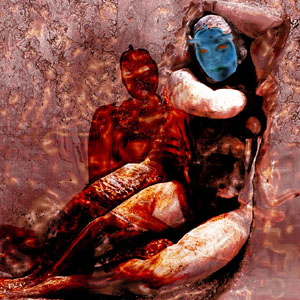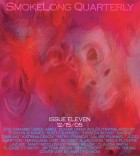To my mother: At sixteen you wished your mother dead. She’d had a stroke and dragged a leg. She rose up out of the pews—born again, Oy Vay! Your daddy died five years ago already. You wanted to go to college and your boyfriend wanted you to go all the way. And your mother was just going to lie there and take that all away from you. But instead she set you free. She did. At her grave site she set her daughter free.
*
In a noisy rented car, during a heatwave in May 2001 my mom and I went looking for B’nai Abraham, a cemetery on 19th and South Orange in Newark, NJ. Her father and mother were buried there in ’44 and ’51 respectively and now, fifty years later and for the first time, she was going back. Several months prior my mom had done her homework searching the Internet, making phone calls and receiving faxes of the cemetery layout and directions.
On the way there I had to keep reminding myself I would see no one. No fat grandma to hug. No warm kitchen with baking bread. I’m going to a piece of stone, a square of land. A reliquary. Bones is all. Fifty-year-old buried bones. Not the bones of a fifty-year-old.
The neighborhood, near where my mom grew up, was poor but fine, not the bombed out slum we worried it would be. We parked across the street under a shady tree and grabbed handfuls of Kleenex before locking the car. The cemetery gate hung down at an angle on one hinge invitingly rusted open.
We looked from the fax to the headstones and back again as we walked past rows of dead Jews. The dead Christians were in an adjacent cemetery, “Holy Mother of the Rosary”, which we’d passed on our way over.
“There it is,” my mom said with water in her throat. Her hand holding the fax drops down by her side as we walk toward the plot identified by a carved obelisk bearing the Solomon name. The leaves of an overhanging tree cut shadows from the sun. A light breeze nudges the branches forcing these shapes to jump across foot stones and over grass.
Seven people, three generations dating back to 1802, share the plot: Raschen Solomon and Samuel Cohen (my mom’s parents), Albert and Esther Solomon (maternal grandparents), Raphael and Ester Solomon (maternal great aunt and uncle) and Philip Solomon (great uncle).
“They lowered it with straps on some sort of pulley system and I remember watching it go into the ground.” My mom tells me this as we sit on a raised and rusted pipe, the barrier cordoning off the adjacent gravesite coincidentally bearing my father’s name.
We took pictures using the automatic timer. I smiled as the camera snapped our image thinking smiling was not right but was how I felt. For the hour we are there, fast-motion photography would show us sitting on the pipe, taking off our shoes, sitting on the ground, moving into the shade and resting against the obelisk. You would see us crying and smiling, holding hands and being separate. Our heads would bob as we looked at each other and looked away, spoke and were silent. My mom says she hoped to see my, as yet, unborn babies. I kissed her on the lips. Her breath was sweet.
“Goodbye you two,” I rested my hand on one sun-warmed headstone, then the other.
“I’m going to kiss them,” my mom says. I step back as she hunches over, rounding her spine to accommodate the sinking stones, leaning on them for support. Her back rounds, disappears, creating a horizon line as her bottom rises. The vertebrae of her spine press through her shirt like stairs. And then she kisses them—lips to stone. I imagine the roughness of the rock, dusty and dry. She stays there kissing each a beat longer than expected, shooting kisses one flight down to the people below where they are received with surprise and relief.
“I turned out okay,” she says to the stones. “And I contributed to society,” she adds her voice wrinkling. “And all these years,” my mom cries, “I’ve missed you.”
Afterwards and naturally we ate tuna fish on rye and sat side-by-side in tall “Princess” chairs as we got our nails done. We passed a bottle of water between us that hot day and chatted with a stranger while our toes dried under an electric fan.
The pictures that day would show the things we did but could never tell what I was too afraid to say then even to myself. That someday I would come back here, to a place like this. In the way most people come to cemeteries, to bury their dead.



 The core workshop of SmokeLong Fitness is all in writing, so you can take part from anywhere at anytime. We are excited about creating a supportive, consistent and structured environment for flash writers to work on their craft in a community. We are thrilled and proud to say that our workshop participants have won, placed, or been listed in every major flash competition. Community works.
The core workshop of SmokeLong Fitness is all in writing, so you can take part from anywhere at anytime. We are excited about creating a supportive, consistent and structured environment for flash writers to work on their craft in a community. We are thrilled and proud to say that our workshop participants have won, placed, or been listed in every major flash competition. Community works.